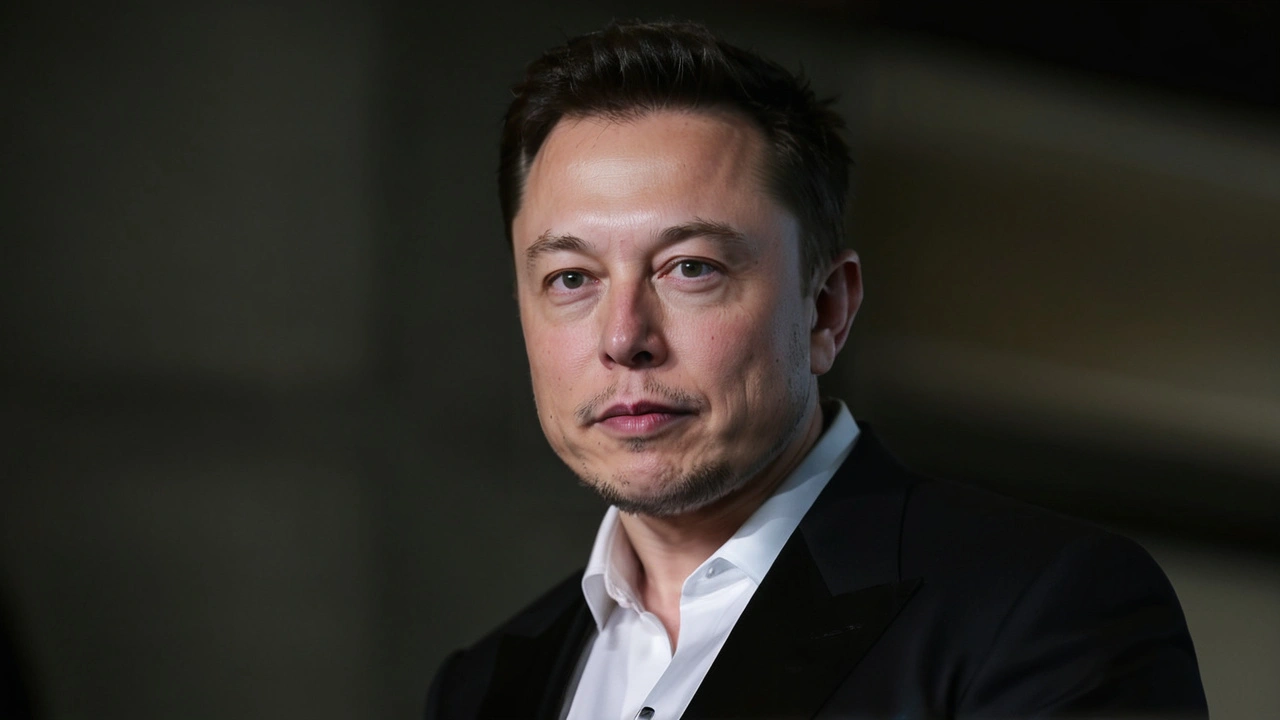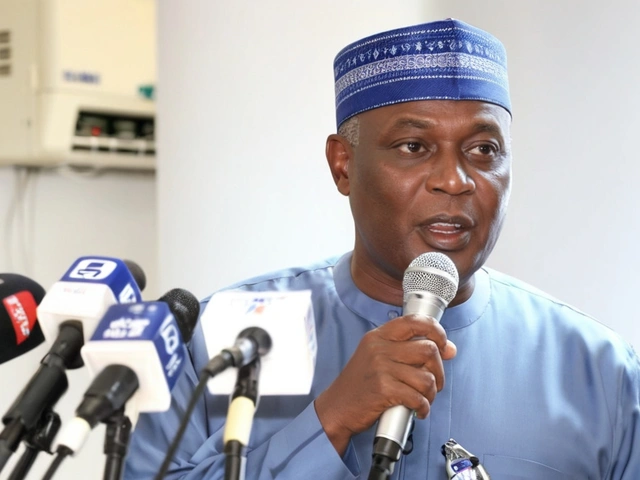Elon Musk and Donald Trump Jr. Raise Alarm Over Alleged Google Election Interference
In a recent controversy, Elon Musk and Donald Trump Jr. have accused tech giant Google of potentially interfering in the upcoming US presidential election by allegedly omitting search results related to an alleged assassination attempt on former President Donald Trump. This accusation emerged when users noted that Google's autocomplete feature failed to provide relevant suggestions about the event, directing them instead to historical instances involving figures like Ronald Reagan and Archduke Ferdinand. Musk, known for his outspoken nature, took to X (formerly Twitter) to voice his concerns, querying, 'Wow, Google has a search ban on President Donald Trump. Election interference?'
The Spark of Controversy
The controversy ignited when users attempted to search for information concerning an alleged assassination attempt on Donald Trump. To their surprise, Google's search engine did not suggest relevant results, and queries were met with historical references to assassination attempts on iconic figures such as Ronald Reagan and Archduke Ferdinand. Musk, sensing foul play, decided to highlight the discrepancy on his social media platform, prompting a renewed debate on the neutrality of tech companies in political processes.
Google's Defense and the Claims Against It
Google swiftly responded to the allegations, clarifying that no manual interventions were undertaken to manipulate search suggestions. The tech conglomerate stated that their systems are imbued with inherent protections against autocomplete predictions associated with political violence. Despite Google's official stance, the damage appears to be done, reviving old concerns about the influence of major tech companies on democratic processes.
Musk's post reads as a signal to the deepening mistrust among certain groups in the United States towards tech giants. Donald Trump Jr. also weighed in on the matter, bolstering the claims of bias and raising questions about the fairness of Google’s algorithms during critical election periods.
The Larger Picture of Election Interference Fears
This incident couldn't have come at a more pivotal time. The US Presidential elections are slated for November 5, 2024, with current Vice President Kamala Harris amongst the prominent candidates running for the Democratic party. Any implication of interference, whether substantiated or speculative, casts shadows on the credibility of not just the tech companies but also the electoral process at large.
The accusation against Google, especially by such prominent figures as Musk and Donald Trump Jr., fortifies a growing narrative that tech companies possess an outsized influence on public opinion and political outcomes. The debates surrounding bias, censorship, and neutrality of tech corporations have been recurring themes since the 2016 elections, reaching new heights with every ensuing electoral cycle.
Debates Over Tech Influence and Bias
As the 2024 elections draw closer, the role of technology platforms and search engines in shaping voter perception will continue to be a hot topic. Critics argue that search engines can manipulate the information landscape, subtly influencing voters through algorithmic biases. The notion that a search engine might filter or omit specific information fuels a broader conversation about the democratic ideals of free information access and unbiased public discourse.
Google's clarification on this issue revolves around the sophisticated mechanics of their search algorithms, which they assure are objective and designed to avoid association with politically charged or violent terms. Yet, for many critics, these assurances fall short, especially when viewed through the lens of historical grievances about perceived biases and unfair practices.
Tech Companies Under Scrutiny
Major tech companies, including Google, Facebook, and Twitter, have faced extensive scrutiny over their roles in politics, particularly around their algorithms and content moderation policies. These platforms wield enormous power in disseminating information, and any suggestion of bias or interference is understandably met with rigorous public and governmental scrutiny.
In the years leading up to the 2024 elections, regulatory bodies and watchdog organizations around the world have stepped up efforts to oversee the activities and policies of these tech giants. The European Union, for instance, has been at the forefront of implementing stringent policies to ensure transparency and fairness in online platforms. Similarly, in the US, a series of congressional hearings have been aimed at probing the influence of tech companies on elections and public opinion.
The Broader Implications for Society
Ultimately, the debate over Google's autocomplete feature is symptomatic of a greater societal anxiety: the fear that vast and complex technologies, wielded by private corporations, might inadvertently or purposefully shape the democratic processes. While Google's defenses rest on the technicalities of their algorithms, the public's apprehension reflects a broader mistrust and a demand for greater transparency and accountability.
The interplay between technology and democracy is delicate, and each incident brings to light the challenges of balancing free expression, accurate information dissemination, and political neutrality. As November 5, 2024, approaches, the scrutiny will only intensify, demanding tech companies to be more transparent in their operations and more sensitive to their impact on one of the world's most pivotal democratic exercises.






8 Comments
Sagar Jadav
July 30, 2024 AT 22:52 PMThis is pure nonsense. Google doesn't censor political events. Stop crying about search suggestions.
saurabh vishwakarma
July 31, 2024 AT 06:24 AMAh yes, the classic 'tech giant is biasing elections' narrative. Let me guess-next you'll claim the moon landing was faked because Google Maps doesn't show the flag. The autocomplete algorithm is designed to avoid violent associations, not to suppress political narratives. You're conflating technical safety protocols with ideological suppression. This isn't censorship-it's damage control. If you actually read Google's white papers, you'd know they filter for harm reduction, not partisan agendas. The fact that you're this easily outraged says more about your worldview than theirs.
MANJUNATH JOGI
August 1, 2024 AT 14:55 PMHey folks, let’s take a breath and look at this from a systems perspective. Google’s autocomplete isn’t a news feed-it’s a predictive model trained on billions of queries, weighted by relevance, safety, and historical patterns. When you type 'assassination attempt on Donald Trump,' the system sees a spike in related terms like 'Reagan,' 'Ferdinand,' and 'Lincoln'-all historical, high-volume events. It’s not ignoring Trump; it’s prioritizing contextually safer, statistically dominant associations. This isn’t malice-it’s machine learning. Think of it like a spellchecker that avoids swear words: it doesn’t hate you, it just follows rules. We need to stop anthropomorphizing algorithms and start understanding them.
Sharad Karande
August 3, 2024 AT 09:53 AMFrom an information retrieval standpoint, the issue is not one of censorship but of query normalization and entity disambiguation. The algorithm likely triggered a low-confidence match due to the absence of verified, contemporaneous events in its training corpus. Autocomplete relies on aggregated, anonymized, and temporally weighted query logs. If no recent, high-frequency, and contextually unambiguous queries about the alleged attempt exist-due to either lack of media coverage or suppression by platform policies-the system defaults to the most salient historical parallels. This is not bias-it's statistical inertia. To claim interference, one must demonstrate intentional manipulation of training data or ranking weights, which has not been proven. The burden of evidence lies with the accusers.
Dr. Dhanada Kulkarni
August 3, 2024 AT 18:38 PMI understand the fear behind this. When you're passionate about democracy and feel like your voice is being silenced, it's natural to look for someone to blame. But let’s not turn a technical limitation into a conspiracy. Google’s systems are complex, and they’re designed to prevent harm-not to erase political figures. Maybe the real issue is how we’ve come to expect search engines to be our historians, our journalists, and our truth-tellers. We’ve outsourced too much of our critical thinking to algorithms. Let’s use this moment to teach ourselves and others how to verify information, not just rage at the machines.
Derek Pholms
August 4, 2024 AT 02:12 AMOh wow, Elon’s got a new hobby: pretending he’s the last free man on Earth while he runs a company that sells ads to the same people he accuses of censorship. Meanwhile, Google’s algorithm just didn’t want to promote a rumor that hasn’t been confirmed by a single credible outlet. Shocking, I know. Next up: 'Twitter banned the word 'the' because it’s a liberal plot.' Can we please stop giving these guys the oxygen of outrage? They’re not gods, they’re not villains-they’re just corporations trying not to get sued while making a profit.
musa dogan
August 6, 2024 AT 00:34 AMThis is the new colonialism, my friends. Silicon Valley oligarchs, in their glass towers of moral superiority, deciding what history we’re allowed to remember. They don’t care about truth-they care about brand safety. They scrub the past like it’s a stain on their PR brochure. Donald Trump is not a footnote. He’s a seismic event. And Google? They’re the janitors cleaning up the mess after the revolution. But here’s the irony: the more they try to bury it, the louder the world screams. The algorithm may be silent, but the people? We are not.
Mark Dodak
August 7, 2024 AT 05:41 AMI’ve been following this whole thing for weeks now, and honestly, I think the real problem isn’t Google-it’s how we’ve built our entire information ecosystem around a single search bar. We don’t read newspapers anymore. We don’t talk to experts. We don’t cross-check. We just type a phrase and assume the top result is gospel. So when Google doesn’t auto-complete something we think should be there, we panic like it’s a government shutdown. But here’s the thing: Google’s not the gatekeeper of truth. We are. If you want to know what happened, go to Reuters, AP, or even the official press releases. Don’t rely on autocomplete to tell you what’s real. The algorithm’s just a mirror-it reflects what we’ve taught it to value. And right now, we’re teaching it to fear controversy more than we’re teaching it to seek truth.